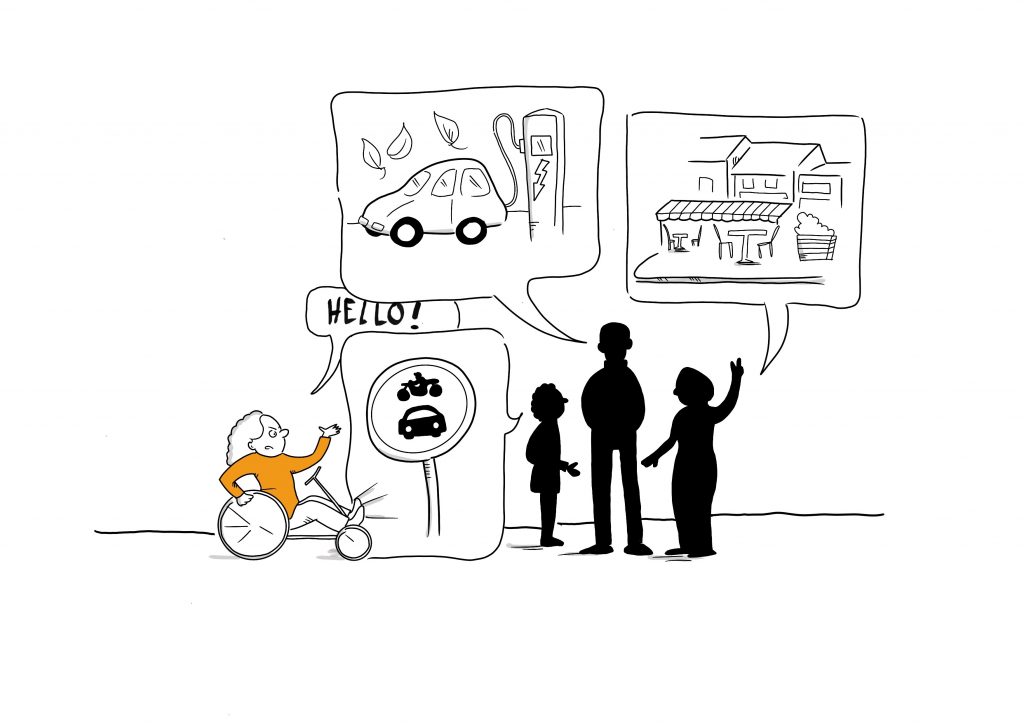Nobody Left Behind
by Ersilia Verlinghieri

Since 2020 we have been collaborating with the climate action charity Possible on the Car-Free Megacities action research project, aiming to reimagine our cities as places where private cars are obsolete, starting with London, Paris and New York. An important aspect of the project has been considering disabled people’s views on reduced mass private car ownership. We considered this key to make sure that changes to current transport provision do not exacerbate the already existing situation of ‘transport disability’, where the limited accessibility of available transport options further disables people with a variety of impairments, older people, and children.

Using interviews with representatives of Disabled People’s Organisations and focus groups with disabled residents, we advanced a reflection on the current challenges of ‘travelling in a car-centric city’ for disabled people as well as key recommendations for making sure that changes in transport systems can improve accessibility and liveability for people who have so far paid the consequences of a car-centric society.
We learnt that there is an immediate need to substantially improve walking, wheeling and cycling environments; an urgent need to upgrade public transport provision and ensure that all buses and trains are fully accessible and, most importantly, a requirement for a substantial cultural shift towards open dialogue and coproduction allowing disabled people to truly take part in the construction of equitable car-free futures.

More information – read the full report Nobody Left Behind: envisioning inclusive cities in a low-car future.